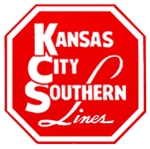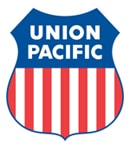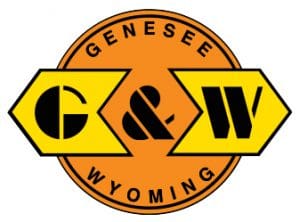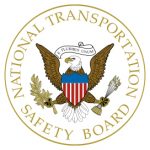Net Earnings: Increased 34 percent to $1.4 billion
Revenue: Increased 16 percent to $6.1 billion
Operating Income: Increased 9 percent to $2.1 billion
Operating Expenses: Increased 20 percent to $4.0 billion
Operating Ratio: Increased 2.1 points to 64.5 percent
Click here to read BNSF’s full earnings report.
Net Earnings: Increased 18 percent to C$1,134 million
Earnings Per Share: Diluted earnings per share increased 21 percent to C$1.54
Revenue: Increased 14 percent to a record C$3,688 million
Operating Income: Increased 8 percent to C$1,492 million
Operating Expenses: Increased 19 percent to C$2,196
Operating Ratio: Increased 2.3 points to 59.5 percent
Click here to read CN’s full earnings report.
Net Earnings: Increased 22 percent to C$622 million
Earnings Per Share: Diluted earnings per share increased 24 percent to a record C$4.35
Revenue: Increased 19 percent to a record C$1.9 billion
Operating Income: Increased 27 percent to C$790 million
Operating Expenses: Increased 14 percent to C$1,108 million
Operating Ratio: Decreased 270 points to a record low of 58.3 percent
Click here to read CP’s full earnings report.
Net Earnings: Increased 106 percent to $894 million
Earnings Per Share: Increased to $1.05 per share from $0.51 per share
Revenue: Increased 14 percent to $3.13 billion
Operating Income: Increased 49 percent to $1.29 billion
Operating Expenses: Declined 2 percent to $1,84 billion
Operating Ratio: Improved 970 basis points to a record 58.7 percent
Click here to read CSX’s full earnings report.
Net Earnings: Increased to $174 million from $129 million
Earnings Per Share: Diluted earnings per share increased 38 percent to $1.70
Revenue: Increased 6 percent to a record $699 million
Operating Income: Increased 14 percent to $265 million
Operating Expenses: Increased to $433.6 million from $422.8 million
Operating Ratio: Improved 2.4 basis points to 62 percent
Click here to read KCS’s full earnings report.
Net Earnings: Increased 39 percent to $702 million
Earnings Per Share: Diluted earnings per share increased 44 percent to a third quarter record of $2.52
Revenue: Increased 10 percent to $2.9 billion
Operating Income: Increased 14 percent to a third quarter record of $1.0 billion
Operating Expenses: Increased 9 percent to $1.9 billion
Operating Ratio: Declined 1.1 basis points to a record 65.4 percent
Click here to read NS’s full earnings report.
Net Earnings: Increased from $1.2 billion to $1.6 billion
Earnings Per Share: Increased 43 percent from $1.50 to a record $2.15 per diluted share
Revenue: Increased 10 percent to $5.9 billion
Operating Income: Increased 9 percent to $2.3 billion
Operating Expenses: Increased 10 percent from $3.3 billion to $3.7 billion
Operating Ratio: Stayed flat at 61.7 percent
Click here to read UP’s full earnings report.
Financial results of the largest shortline:
Net Earnings: Increased to $69.6 million from $50.2 million
Earnings Per Share: Increased 45 percent to $1.16
Revenue: Increased 11.5 percent to $355.7 million from $318.9 million
Operating Income: Increased 24.7 percent to $102.5 million, up from $82.2 million
Operating Expenses: Increased to $253,225 from $236,724
Operating Ratio: Improved 3 points to 71.2 percent from 74.2 percent
Click here to read G&W’s full earnings report.
Notes:
- Operating ratio is a railroad’s operating expenses expressed as a percentage of operating revenue, and is considered by economists to be the basic measure of carrier profitability. The lower the operating ratio, the more efficient the railroad.
- All comparisons are made to 2017’s third quarter financial results for each railroad.
- Figures for G&W are for North American operations only with the exception of Net Earnings & Earnings Per Share, which includes all G&W operations, as solely North American figures were unavailable in these categories.






 WASHINGTON (Jan. 11, 2018) — The National Transportation Safety Board (NTSB) issued four railroad related safety recommendations in concert with the agency’s publication of two railroad accident briefs Thursday, Jan. 11.
WASHINGTON (Jan. 11, 2018) — The National Transportation Safety Board (NTSB) issued four railroad related safety recommendations in concert with the agency’s publication of two railroad accident briefs Thursday, Jan. 11. DENVER – An investigation by the U.S. Department of Labor’s
DENVER – An investigation by the U.S. Department of Labor’s 

